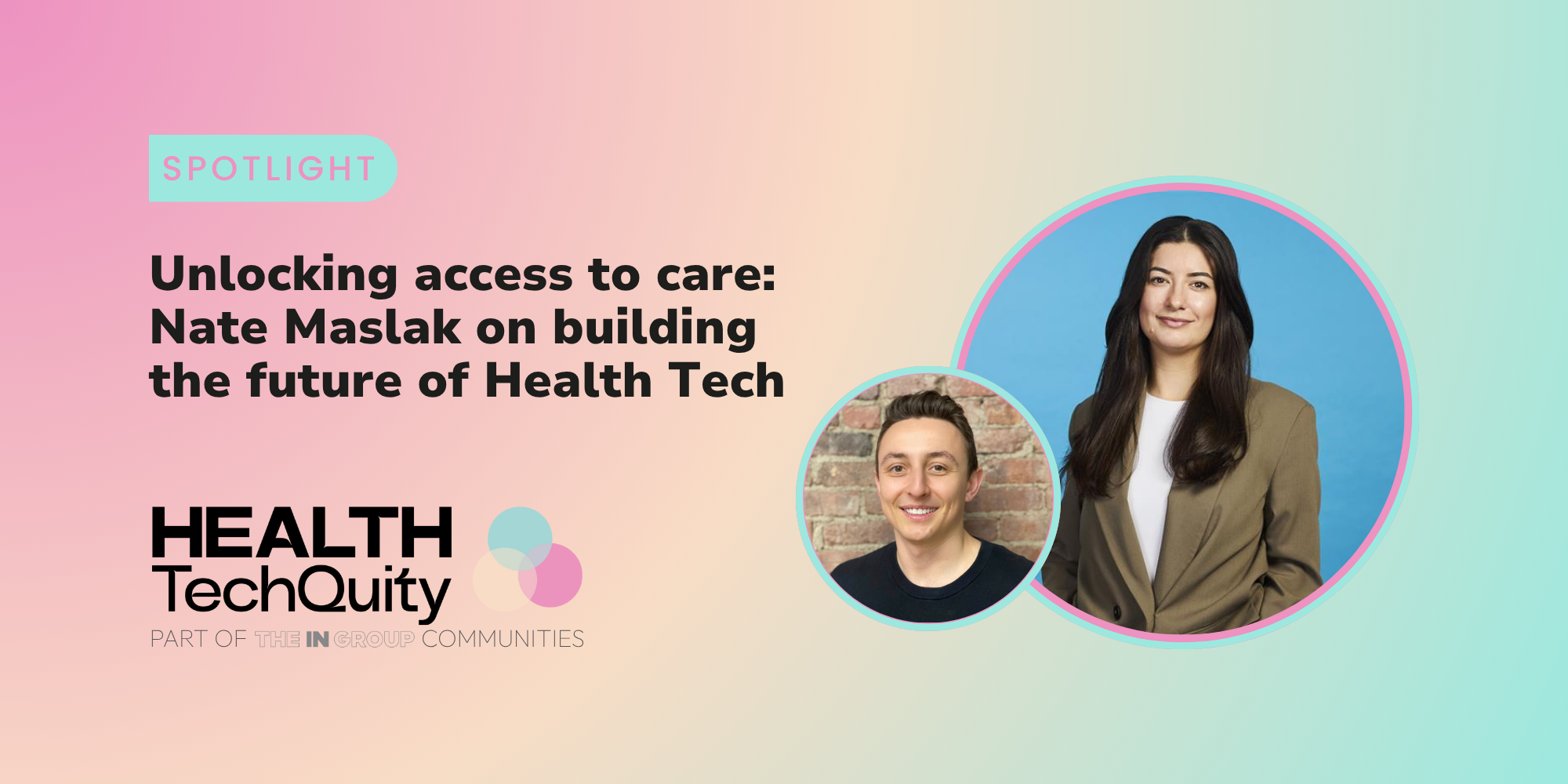In this edition of the HealthTechQuity spotlight series, we sit down with Nate Maslak, co-founder of Ribbon Health and now leading strategy and growth at H1. Nate has dedicated his career to addressing the complexities and barriers in healthcare, working to make it accessible, affordable, and high quality for everyone.
Nate’s path into health tech wasn’t planned. Early in his career, he worked with healthcare clients, helping to rebuild state Medicaid programs and improve hospital and payer operations. It was here that he saw the inefficiencies of a system constrained by outdated processes and fragmented data. The frustration of seeing clinicians and patients struggle with preventable obstacles inspired him to find solutions. After gaining experience in big data and ad tech, he returned to healthcare with the skills to scale practical, technology-driven solutions.
One lesson has guided him throughout, personal values must align with company mission. A former CEO taught him that company values must authentically reflect your own, or “it’s never going to work.” For Nate, this alignment drives both leadership decisions and company culture, ensuring that his work consistently serves patients and providers.
He identifies structural challenges as the biggest obstacle in health tech. The US healthcare system has evolved over decades, shaped by historical policies and entrenched incentives. Understanding these realities is crucial to building solutions that are effective, sustainable, and patient-centred. AI and modern technology offer opportunities to leapfrog some of these challenges, but innovation must respect the constraints of the system.
Nate is particularly inspired by companies tackling health equity. Oak Street Health, for example, builds primary care clinics in underserved areas, focusing on whole-person care and value-based models. By understanding patients’ circumstances, not just their symptoms, they improve outcomes and reduce unnecessary interventions. Nate also sees opportunities in AI and technology to create efficiency, such as streamlining scheduling, giving providers more time to spend with patients, and ultimately expanding access to care.
Looking forward, Nate hopes the term “health tech” itself will disappear. Technology should be a seamless part of healthcare, enabling providers and organizations to deliver care effectively without thinking of it as a separate layer. The goal is not just better tools, but better experiences for patients and providers alike.
Nate's journey underscores that meaningful progress in healthcare comes from understanding the system, focusing on real problems, and aligning innovation with human needs. By combining practical solutions with a deep sense of mission, it’s possible to dismantle barriers, improve access, and create a healthcare system that truly works for everyone.

